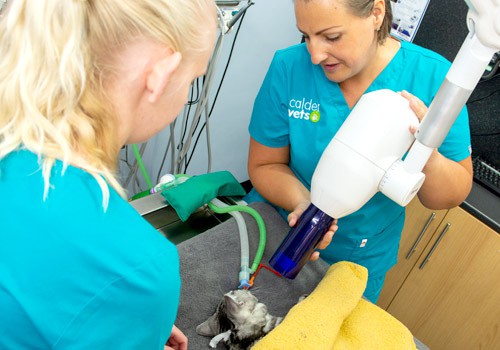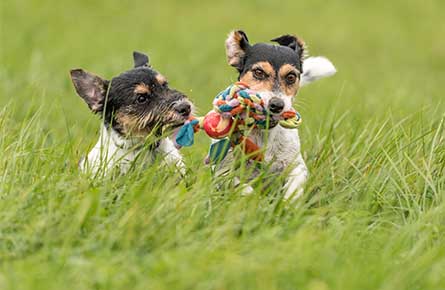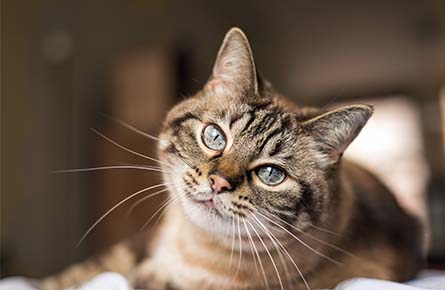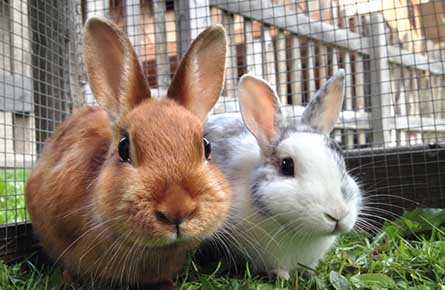We boast state of the art dental equipment, facilities and in-house training, meaning your pets are in the very best hands when it comes to their dental treatment needs.
Dental disease is extremely common in pets, due to a combination of dietary and genetic factors. Just as it is for humans, regular scaling and polishing of teeth is a routine part of keeping your pets mouth healthy and preventing periodontal disease, tooth loss and pain. Once periodontal disease is present, tooth extraction is needed to restore oral health and remove pain.
In addition, it is well proven that the infection associated with dental disease can gradually cause damage to other vital organs in the body through bacteraemia (bacteria getting into the bloodstream). If you have noticed any worsening in your pet’s breath, this is very likely to be happening already.
Pet dental treatment in Dewsbury and West Yorkshire
Why not book a dental check so that your pet’s teeth can be assessed for any existing dental disease that may require veterinary intervention and also to provide tailored home care advice for your pet.
Introducing dental checks and scale and polish treatments into your pet’s life might be daunting but it’s vital to ensure they’re healthy.
Pet dental Excellence at Calder Vets
Our dental work is done to an extremely high clinical standard and the following is included in all dental procedures;
- IV fluids (if needed), enhancing anaesthetic safety and speeding recovery
- X-rays carried out as routine on all patients before teeth are extracted
- Dental nerve blocks (local anaesthetic) to provide excellent pain relief for patients having extractions
- Pain relief injection and pain relief medication to come home with (where required)
- Teeth are extracted surgically where appropriate (so the gum is stitched closed)
- Personalised aftercare plan with two post dental checks and regular dental check ups
So what next?
If you want to book a dental check for your pet contact your local Calder Vets clinic here.
Find out more about dental care for your dog, cat or rabbit by clicking the links below.
Pet Dental Care FAQ
My pet is still eating, could they still be in pain?
Quite possibly. If you have ever had a dental problem yourself, you will be aware it can be very painful. Gingivitis (sore, red gums) is probably not that painful, but it is the first step on the road to periodontal disease (receding gums, tooth loosening, tooth root exposure and infection) which is painful and ultimately irreversible if left too long.
Resorptive lesions in cats, (painful erosive lesions commonly found in cats that destroy the tooth and cause pain. Also known as neck lesions and feline odontoclastic lesions (FORLs), are particularly painful and many cats suffer in silence with teeth that have the pulp cavity (sensitive ‘core’ of the tooth) exposed.
Fractured/broken teeth can also expose the pulpcavity and gradually lead to ‘pulpitis’ - painful inflammation of the tooth.
Dogs and cats rarely yelp if they are in chronic pain (yelping is normally associated with acute/immediate pain e.g neck or spinal pain, or treading on a paw!). Chronic pain is much harder to spot in cats and dogs - they express pain differently to us. Interestingly, many owners report back that after the dental work has been done, their pet appears significantly brighter and happier, which reflects the underlying pain resolving.
They will only stop eating if the pain becomes excruciating, so the fact they are still eating does not mean there is no discomfort present.
Should I introduce dental checks, scale and polish treatment for my pet?
Introducing dental checks and scale and polish treatments into your dog’s life might be daunting but it’s vital to ensure they’re healthy. Can’t it wait?
Most dental cases aren’t a dire emergency. They may have been grumbling away in the background without you noticing for a while. However, dental disease is progressive and things will gradually get worse.
The longer the delay, the more likely your pet will get irreversible changes - this means potentially more extractions, resulting in a longer anaesthetic and also more expense. It’s definitely better to get it carried out sooner rather than later as untreated dental disease can go on to affect the internal organs such as the liver, kidneys and heart. If you are insured, be aware that not all companies will cover dental treatment - and those that do may subsequently refuse to pay if work that was recommended by the vet is not carried out promptly.
What facilities does Calder Vets have for my pet's dental care?
We have advanced digital dental x-ray facilities at all our operating clinics, this allows us to assess what’s happening below your pet’s gum line, as what you see of the surface can be just the tip of the iceberg. Often some dental conditions can go un-recognised without the use of dental x-rays.
What can laser therapy do for my pet's dental health?
Laser therapy promotes healing and reduces pain and inflammation after dentistry. Post dental treatments are £14.70 for two sessions and are usually performed on the day and first post dental check-up. Please check with your clinic for availability.




